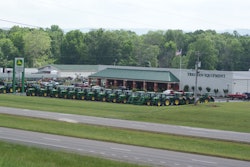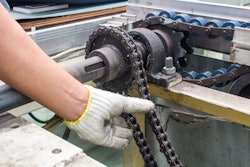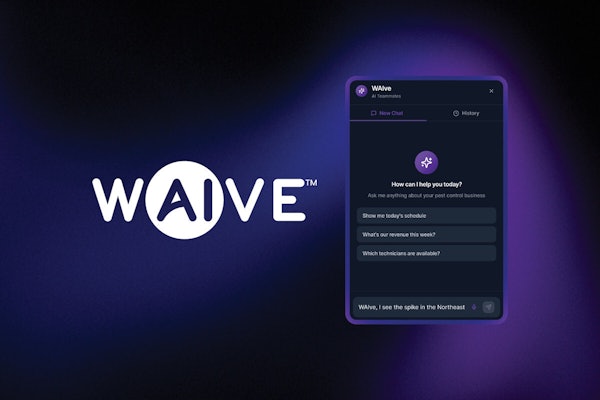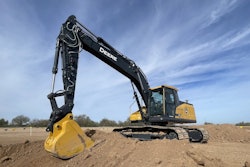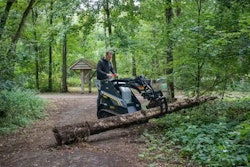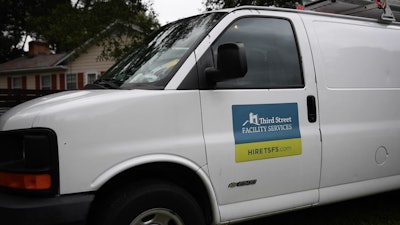 Photo: Third Street Facility Services
Photo: Third Street Facility ServicesIn 2017, the Third Street Education Center, a community center in Greenville, North Carolina, launched a landscaping contract business. Today, the landscaping portion of the organization is known as Third Street Facility Services, and 95 percent of their workforce consists of workers with a criminal background and those recovering from substance or alcohol abuse.
“Through all of the changes the facility has gone through, our mission has been the same,” says Donald Pilgreen, director of business and workforce development. “We take individuals who have trouble finding employment for whatever reason, be it criminal background history or past problems with substance abuse and alcoholism, and we get them back into the job force.”
Pilgreen says when Third Street first began its landscaping services, employees would stay for about nine months to work, and then they would be sent on their way. Pilgreen says they soon realized they weren’t doing enough to help these people reintegrate back into society.
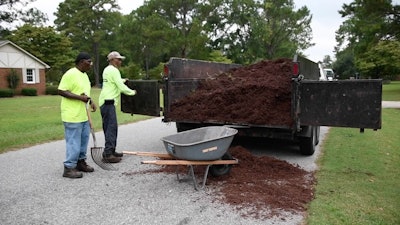 Photo: Third Street Facility Services
Photo: Third Street Facility ServicesToday, Pilgreen says Third Street partners with local community colleges to offer educational opportunities to the employees. If employees plan to work at Third Street, Pilgreen says they are required to get their GED, and classes for this are offered by the community colleges at the facility.
Pilgreen adds that employees are also offered opportunities to earn different green industry licenses, and money earned from the business is immediately invested back into the workers in numerous ways.
In his experience, Pilgreen says one thing that typically runs hand-in-hand with substance and alcohol abuse is the loss of a driver’s license, which can hinder workers from finding other employment once they leave Third Street. Many of his crew simply don’t have the funds to have their license reinstated, and Pilgreen says a portion of their profits goes toward funding people in that situation.
According to Pilgreen, the end goal is to foster recovery and help these people to return to society as useful, whole members that can be self-sustainable and career-minded.
“We’ve found out that if you’ve got a lot of negatives in the bucket of a scale, even with work history and a job reference in the positive bucket, that’s still not enough to balance out the scales,” says Pilgreen. “That’s why we created educational and licensure opportunities.”
Pilgreen says he’s also created partnerships with different manufacturers and businesses in the community that would be willing to hire his employees once they’ve made it through their time with Third Street.
Helping the shortage by changing perceptions
For landscaping companies wanting to supplement their labor shortage, Pilgreen says hiring from this pool could be the solution. However, before ever hiring, he says it’s mandatory that you remove the stigma of hiring a former convict.
As a former felon himself, Pilgreen says he knows just how important it is to have someone be willing to take a chance on you and look past your past.
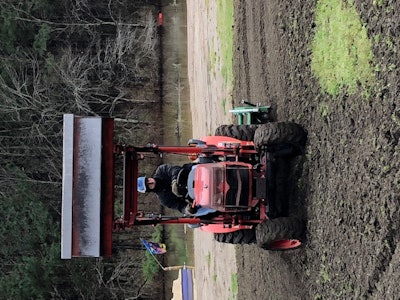 Photo: Third Street Facility Services
Photo: Third Street Facility Services“I have the longest record of anyone here,” he says. “The day I ended up in a homeless shelter was the day I decided I was going to do something different. I said, ‘God, here’s your chance.’ I was never a bad person. Prisons are full of good people who do bad things. Don’t get me wrong, there are bad people in prison, but for the good people, you have to be able to look past that and realize that mistakes are mistakes and everyone makes them.”
Pilgreen believes it’s unfair to hold these mistakes against these individuals for the rest of their lives and “assume they are terrible people with nothing good to offer society.”
If you’re a landscaping company interested in hiring employees with this type of background, Pilgreen says changing this mindset is the first and most important step. If you don’t change that mindset, he says you will always treat people as second class or less than because they are convicted felons.
“I was able to come out on the other side,” he says. “I’m happily married, I have two great stepdaughters, I own my own home, I make a great salary and have a great job. There is hope on the other side. You don’t have to continue to be held back by those things and do those things.”
Before hiring, Pilgreen says candidates undergo a thorough background check. If someone has had violent crimes in the past 10 years or if they have ever had any sexual offenses, they will not be hired.
Since starting up the landscaping business, Pilgreen says they have received overwhelming support from the community, and they were even able to initiate a residential maintenance side of the business last year.
He does admit there was some initial pushback from homeowners due to the stigma surrounding the employees, but Pilgreen says that is no longer an issue and they are now almost at their max for taking on residential customers.
“We stress character to these guys and how important it is to show good character while you’re on the job and at peoples’ houses,” he says.
Since the manager of the landscaping division has a degree in horticulture and turfgrass management, Pilgreen says he’s able to teach the other crew members in detail about green industry practices and procedures to help further their landscaping education.
Pilgreen says the nationwide shortage of green industry labor has not fazed their business at all, as he still has a stack of applications on his desk for potential employees.
Pilgreen again stresses the importance of banishing the stigma surrounding hiring convicted felons. Instead, he says you have to look at it not as a risk but as an opportunity to be of service to other people who need you to help their cause.
“We are a faith-based organization; we don’t beat people over the head with the Bible, but we do practice grace and mercy,” he says. “We believe that everybody deserves an opportunity and a second chance, and even a third chance sometimes.”
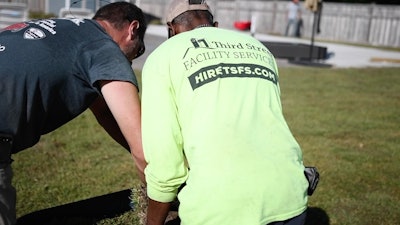 Photo: Third Street Facility Services
Photo: Third Street Facility ServicesWhile he doesn’t attribute the success of the organization solely to his background, he does say that being a convicted felon himself has given him the experiences that allow him to relate to the employees on a more personal level. He knew what he needed during those specific times in his life, and he knows how to help others going through those situations.
He also notes that he has seen a tremendous amount of gratitude and work ethic from the majority of his employees through the years. He says they were extremely thankful for the opportunity and realized that without this experience, the workforce will be much more difficult for them down the line.
“I can relate because I’ve been there,” he says. “I’ve been penniless, homeless, brought out of prison, the whole nine yards. I think my experiences have attributed to the success we have, but you don’t have to be a recovering drug addict, alcoholic or a convicted felon for this type of setup to work for you. All you have to do is have the heart to want to serve and come alongside people who need that.”



